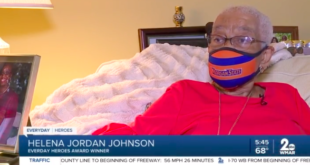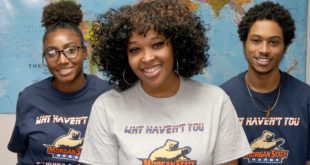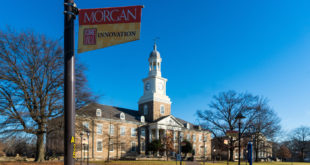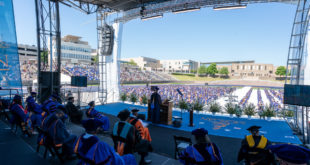FOR IMMEDIATE RELEASE:
CONTACT: Dr. Victor R. McCrary,
VP for Research & Economic Development
443-885-4631
Morgan State University installs WeatherBug Weather Station

In spring 2014, Dr. Richard Damoah formerly Universities Space Research Association scientist on the GESTSAR program at Goddard Space Flight Center (GSFC) in Greenbelt, MD, joined the physics department at Morgan State University (MSU) as a part-time faculty member through the NASA GESTAR (Goddard Earth Sciences Technology and Research) program with which MSU is a partner. To aid the meteorology course he is structuring this fall, Dr. Damoah proposed the acquisition of a Morgan State University Weather Station to be installed on campus. With funding from the Physics Department through the Laboratory Enhancement Grant, the station was successfully installed on September 3, 2014 by WeatherBug by Earth Networks (see http://weather.weatherbug.com/weather-safety/online-weather-center/OnlineWeatherCenter.aspx?aid=5990).
The new outdoor weather station will record temperature, precipitation, barometric pressure, sky cover, wind speed and direction and relative humidity, then display screens of current condition including 3-day forecast, live camera, Doppler Radar and local weather alert on a 21” indoor LCD display. It will also publish all weather data 24/7 to the web for public consumption. This new station will be providing many benefits to students, such as how to use professional weather station equipment and sensors; real time tracking of approaching weather systems and comparison of data collected to real-time satellite and radar imagery; recognizing weather patterns including short and long-term trends for all areas of weather data; providing reliable data for classroom discussion of weather events while or after they occur, encouraging curiosity and engagement. Faculty at Morgan will also benefit from the new weather station by creating exercises and projects based on weather data from the campus location. The new weather station will also be incorporated into the EASC 102 Meteorology course and the EASC 205 Introductory Earth Science course which current enrollment of the two classes is at 51 students. Both courses are offered this semester as General Education requirements in the Biological and Physical Sciences.
The weather station now at Morgan’s campus in Baltimore will soon be used in conjunction with the station at the MSU Patuxent Environmental and Aquatic Research Laboratory (PEARL) in St. Leonard, MD, to collect local weather related data for education and research purposes. The weather instrumentation comes with many other advantages to Morgan State University besides its main objective of curricular development in Earth Science and Meteorology. It will be used to advertise Morgan through media when the data from Morgan is mentioned by local weather stations. It will also serve the local community in the President’s Morgan Mile initiative as first alert in weather related occurrences.

WeatherBug by Earth Networks, is a respected provider of precise and timely weather products for over 20 years. Their products are used at thousands of schools, major sports stadiums, broadcast stations and public safety facilities across the U.S. and beyond, their sensors comprise the largest commercial-grade weather and climate network in the world. In addition to massive amounts of weather data they collect from their sensors, they integrate data from sources such as the National Weather Service (NWS) and the World Meteorological Organization (WMO), providing their users access to the biggest global network of professional weather stations.
Morgan State University, founded in 1867, is a Carnegie classified Doctoral Research Institution offering more than 70 academic programs leading to bachelor’s degrees as well as programs at the masters and doctoral levels. As Maryland’s Public Urban Research University, Morgan serves a multi-ethnic and multi-racial student body and seeks to ensure that the doors of higher education are opened as wide as possible to as many as possible. For more information on Morgan State University, visit www.morgan.edu.
 Morgan State University Newsroom Morgan State University
Morgan State University Newsroom Morgan State University




